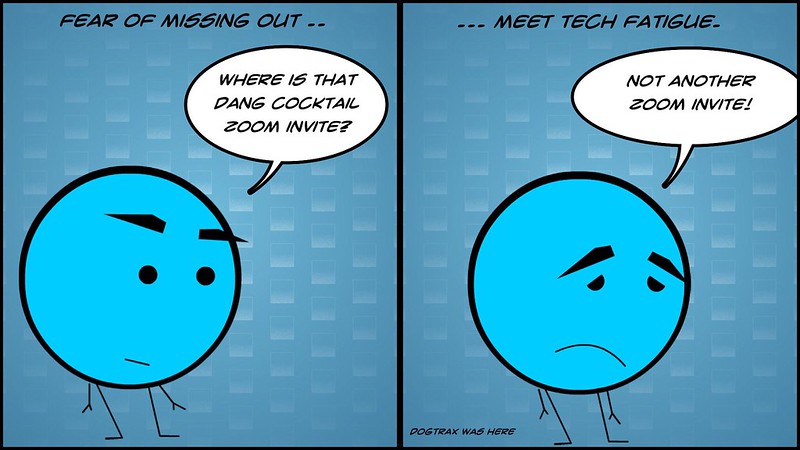I recently took part in a three-hour professional development session in Zoom (groan, if you need to). I want to be upfront and say: I liked the presenter well enough, as they demonstrated strong knowledge and understanding of their topic, and this video session replaced an in-face session that wrapped up an interesting hybrid course on the teaching of reading that unfolded over a few months time (when we were all still in school).
It’s not the instructor’s fault they had to do this final session via Zoom. It’s the Pandemic and social distancing. They did the best they could to cover the material they needed for the job they were hired to do. I get it. It’s also possible that I went in a little weary of video conferencing, as so much time is spent doing so with students and administrators and others. That’s on me.
But … I thought afterwards of some lessons I learned by being a participant in the Zoom session as I think about being in the role of presenter in online gathering (as I am leading some work next week for colleagues.)
These are my observation notes to myself:
- Avoid sharing three-hour online PD agenda, with only one scheduled 10 minute break. I was sighing at that before the session started. I’d say, in a three hour session, there should have been at least three or for breaks, chances to get away from the screen. And make those breaks visible in the agenda.
- Maybe re-think three-hour virtual PD sessions altogether.
- Avoid talking for 60+ minutes straight. There’s something about the sound of a single voice, with the eyes on the screen, that starts the mind (or my mind, at least) to drift. Find ways to break things up.
- Regularly stop, and encourage engagement. Offer writing moments. Share polls for questions (and add an off-subject zinger in there now and then). Collaborate. Come at the audience from left field. Startle them back to the task at hand.
- Don’t cover material that was already covered through reading or other course/PD work elsewhere. Engage the brains with something new, not reviewing what is already known (some refresher tips is fine, of course, as long as it sets the stage for something to come).
- End with some sort of collaboration, to allow participants to reflect and think on next steps. Gather ideas together and share back out. Open the teaching to everyone (particularly in a room full of other educators).
- Use an exit ticket to learn what worked and what didn’t work in this new world of online professional development delivery. (Write your own reflection on what you think went well and what didn’t, and what you might change).
I’m no fan of this new push into video PD format but I understand it is our world for the foreseeable future, and so, we need to find strategies that make it work for everyone. Listening to a voice talk for long stretches never worked before and it works even less now on screens. We need to think about engagement, more than ever.
Peace (thinking on it),
Kevin

Hi Kevin
Forced into learning something new, I took a brief mini-course in Zoom facilitation. We watched Zoom-produced videos, viewed model applications by the instructor, and did tryouts on our own and with a partner (chat rooms, screen sharing, polls, whiteboard…)
It’s still not a perfect medium, but helped with the interaction/engagement element.
Cheers
I appreciate your generosity towards the speaker and your constructive ideas. I face a full-day “retreat” via Zoom next week, with well-meaning but inexperienced video-conferencing facilitators. I’m positively dreading it.